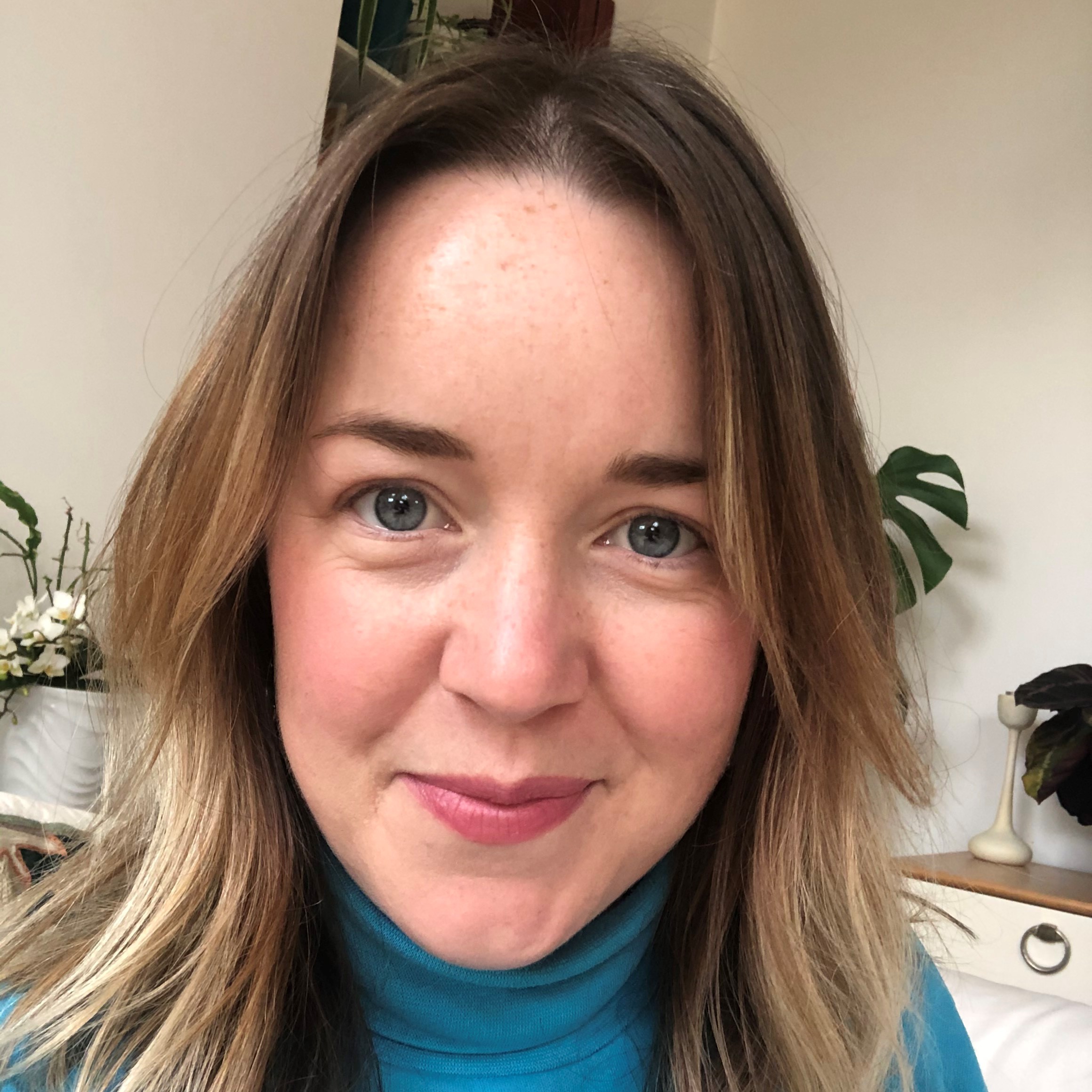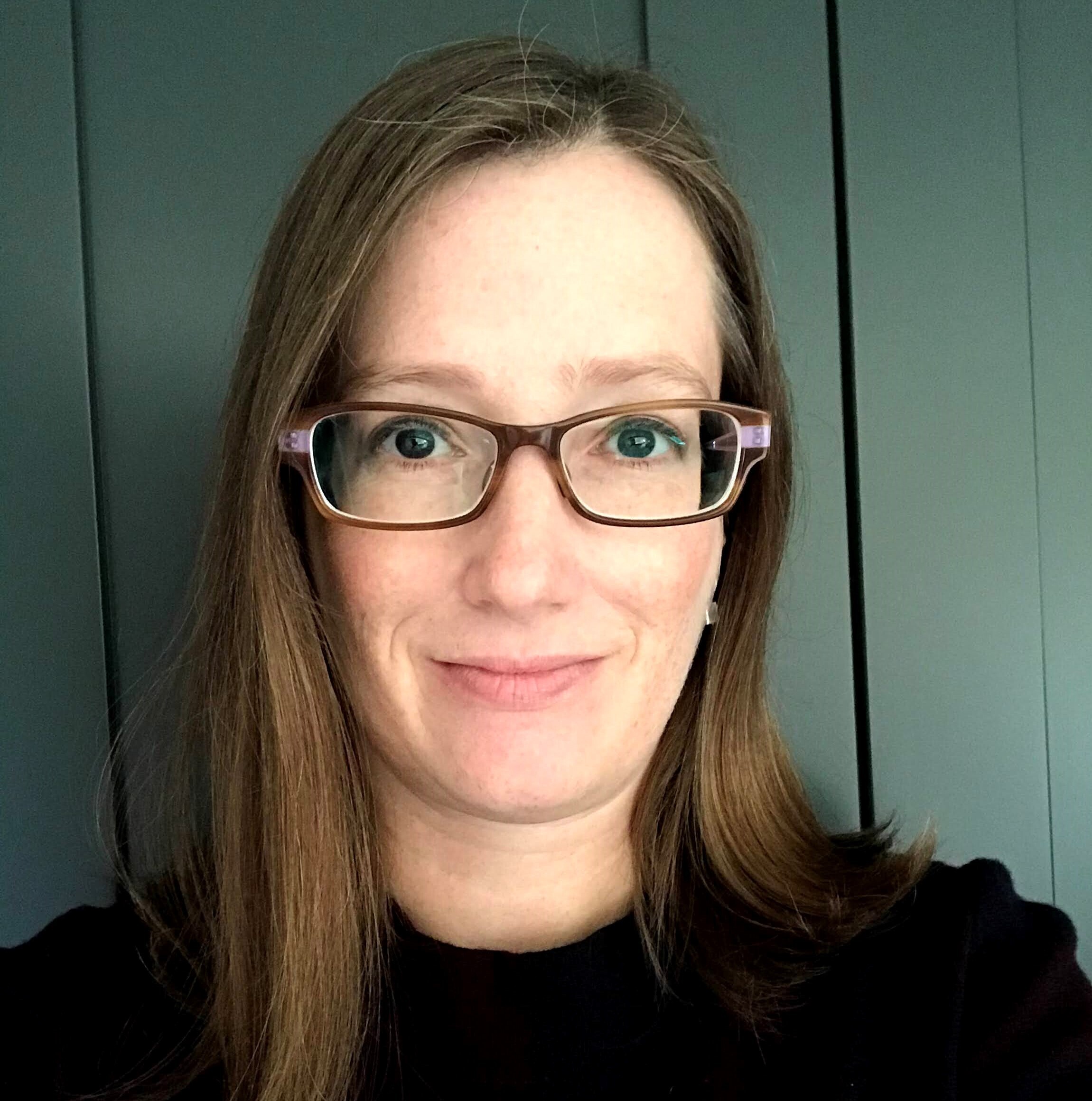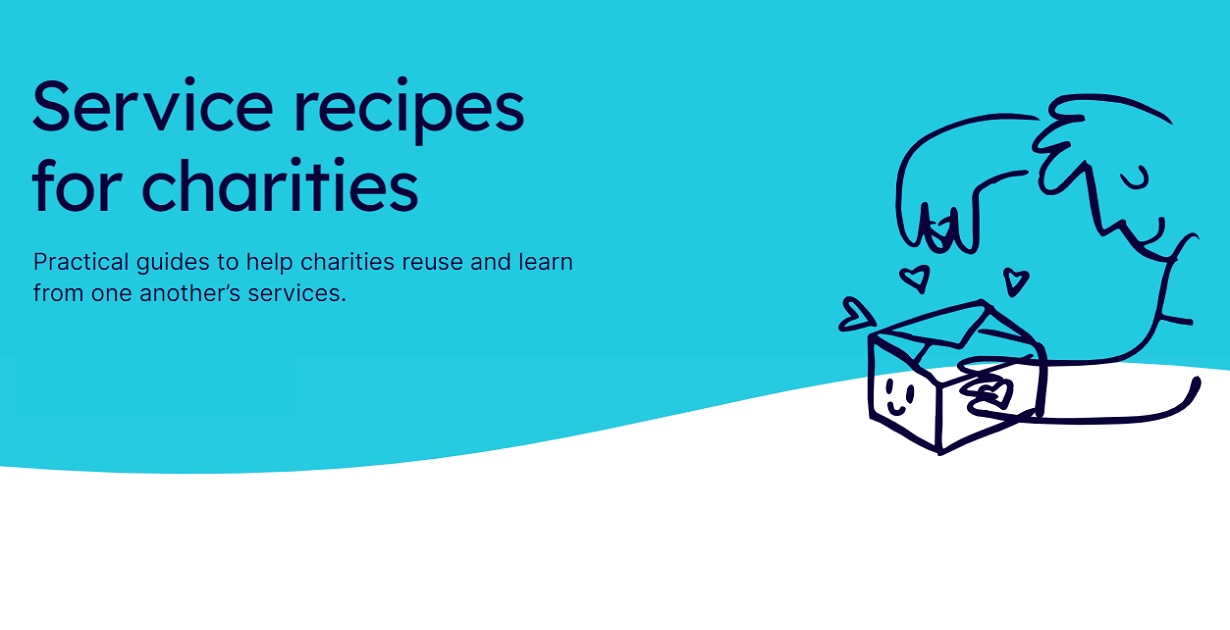
We're looking for an organisation with good service design skills to work with charities that are developing digital products, and look for opportunities for reuse. Is that you?
This week, we’ve tendered a new contract connected to our service recipes programme.
We want someone to work with the charities and civil society organisations we support, and identify opportunities to reuse what they’ve learned.
There are a lot of opportunities for reuse in the voluntary sector. Despite the diverse range of causes that charities support, many of the activities that they carry out are similar, and many are carried out again and again. Many charities provide libraries of information, for example. Many offer support and counselling. Many run training courses. And so it goes on. Doing it in one charity is much like doing it in another. So the likelihood is that if one charity has found a good system to solve one of these problems, another charity can pick it up and copy it.
For this reason, we’ve developed the service recipes hub. Each of the recipes contained on this hub lists out how a charity uses a particular tool, process, service or standard to achieve or create something that their users need. Our expectation is that other charities can take and adapt so that they can meet their users’ needs, without having to figure out for themselves all the steps in the process.
Reuse is an extremely valuable process. It enables quick testing and learning and makes it easier for charities to kickstart their entry into designing digital services.
It also has a positive impact on teams and organisational culture. It increases the confidence of team members involved, shifts attitudes towards digital tools, and acts as a gatekey to allow entry to a community of other practitioners and organisations working to address similar challenges.
Not only that, but it is cheaper and quicker, and allows charities to make better use of scant resources. Too often we see hard-come by charitable funds spent on producing new bespoke digital solutions, when something simpler and easier already exists. We’d like to help avoid this.
Taking it further
Over the course of the next five months, Catalyst is likely to be involved in funding the work of around 60 to 70 charities to develop solutions to digital, data and design challenges. Part of our agreement with all of those organisations, and the digital agencies supporting them, is that anything that emerges from this process must be made available for reuse by the whole of the sector.
To make that happen, we’d like a partner to work with charities and agencies, to make sure they think about the potential for reusability in all of their work, right from the start, and to help them spread the gospel of reuse to all of their partners and peers.
On a practical level, we’d like the partner to work-one-to-one with charities and agencies, review the work being done on a programme, and really get under the skin of what’s happening. Then we’d like that partner to collaborate and spot patterns within the programme that are ripe for reuse, and work out the best ways to ensure that reuse happens. Where the right answer is to codify that as a service recipe, we’d like the partner to produce one. Ideally we’d like a new service recipe for every product created during the development process.
We’re looking for organisations with really good service design skills, who understand the process of creating services, and how to translate that process into a way which makes sense for others.
If that sounds like you, and this sounds like the kind of project you’d like to work on, we’d love to hear from you.
This week, we’ve tendered a new contract connected to our service recipes programme.
We want someone to work with the charities and civil society organisations we support, and identify opportunities to reuse what they’ve learned.
There are a lot of opportunities for reuse in the voluntary sector. Despite the diverse range of causes that charities support, many of the activities that they carry out are similar, and many are carried out again and again. Many charities provide libraries of information, for example. Many offer support and counselling. Many run training courses. And so it goes on. Doing it in one charity is much like doing it in another. So the likelihood is that if one charity has found a good system to solve one of these problems, another charity can pick it up and copy it.
For this reason, we’ve developed the service recipes hub. Each of the recipes contained on this hub lists out how a charity uses a particular tool, process, service or standard to achieve or create something that their users need. Our expectation is that other charities can take and adapt so that they can meet their users’ needs, without having to figure out for themselves all the steps in the process.
Reuse is an extremely valuable process. It enables quick testing and learning and makes it easier for charities to kickstart their entry into designing digital services.
It also has a positive impact on teams and organisational culture. It increases the confidence of team members involved, shifts attitudes towards digital tools, and acts as a gatekey to allow entry to a community of other practitioners and organisations working to address similar challenges.
Not only that, but it is cheaper and quicker, and allows charities to make better use of scant resources. Too often we see hard-come by charitable funds spent on producing new bespoke digital solutions, when something simpler and easier already exists. We’d like to help avoid this.
Taking it further
Over the course of the next five months, Catalyst is likely to be involved in funding the work of around 60 to 70 charities to develop solutions to digital, data and design challenges. Part of our agreement with all of those organisations, and the digital agencies supporting them, is that anything that emerges from this process must be made available for reuse by the whole of the sector.
To make that happen, we’d like a partner to work with charities and agencies, to make sure they think about the potential for reusability in all of their work, right from the start, and to help them spread the gospel of reuse to all of their partners and peers.
On a practical level, we’d like the partner to work-one-to-one with charities and agencies, review the work being done on a programme, and really get under the skin of what’s happening. Then we’d like that partner to collaborate and spot patterns within the programme that are ripe for reuse, and work out the best ways to ensure that reuse happens. Where the right answer is to codify that as a service recipe, we’d like the partner to produce one. Ideally we’d like a new service recipe for every product created during the development process.
We’re looking for organisations with really good service design skills, who understand the process of creating services, and how to translate that process into a way which makes sense for others.
If that sounds like you, and this sounds like the kind of project you’d like to work on, we’d love to hear from you.
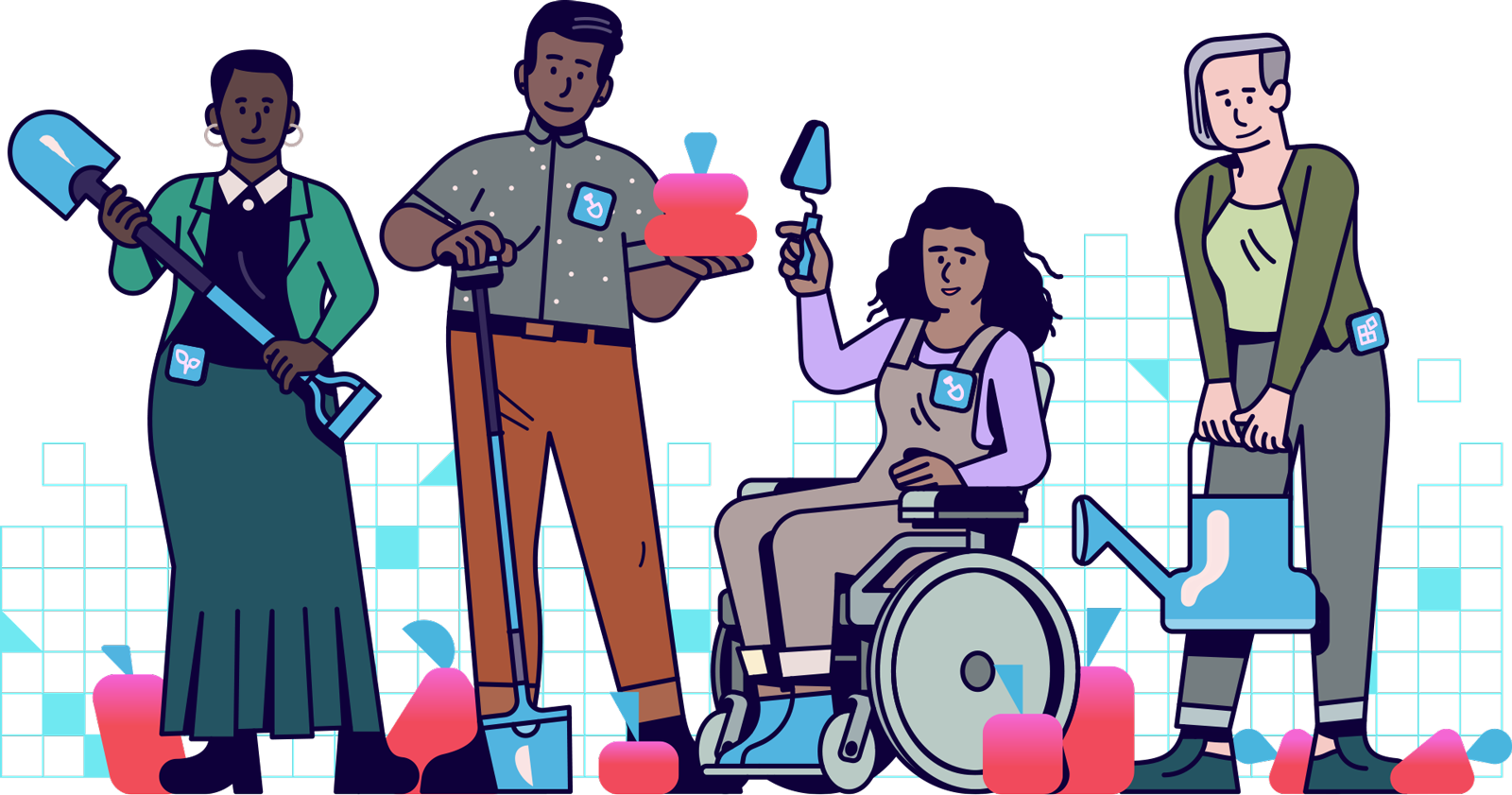
Support & services
Our free services help you make the right decisions and find the right support to make digital happen.
Learn what other non-profits are doing
39+ organisations share 50+ Guides to how they use digital tools to run their services. Visit Shared Digital Guides.
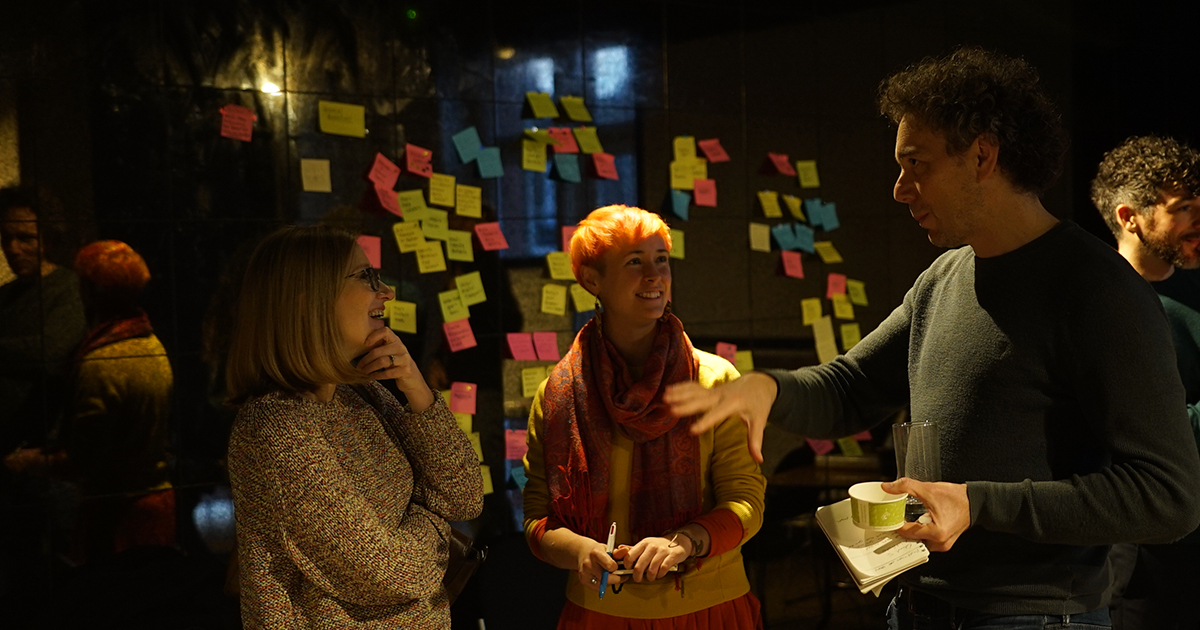
CAST and Catalyst: the journey, the transition - and beyond

